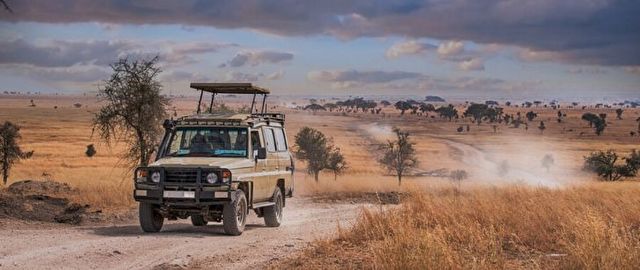Travel Checklist When Going On A Safari
Date Posted: 07/02/2020

Safari rides bring a whole new definition to the word ‘adventure’. Bursting with endless wildlife encounters, sightseeing opportunities, and the chance to experience something completely out of the ordinary; they’re the perfect kind of holiday for everyone.

When we think beach holidays we think to pack sunglasses, swimwear, and a towel… For a safari it’s a little different, or in a fact a LOT different. There’s quite a list of things to consider for these type of holidays but as long as you’re organised then you’re set for plenty of thrill and excitement.
Besides the obvious stuff like your passport, travel insurance, eTickets, medication, standard toiletries, and itinerary, there are actually a few more handy things you may want to think about…

Ensure you’ve had all necessary vaccinations
Before your date of travel, it’s crucial you consult a healthcare professional at least 6-8 weeks in advance to let them know where you’re going, how long for, what you’ll be doing, and give a general overview of your current health status. With this information they’ll be able to advise you on any vaccinations you may need to help prevent dangerous diseases, including hepatitis, diphtheria, rabies, or malaria. They’ll also be able to recommend on any other measures to be taken, which may include food and water safety, care with sun exposure, avoiding insect and animal bites, and accident prevention.

Always pack an insect repellent with DEET
The most effective insect/mosquito repellents include DEET. Developed by the US Army in 1946, it’s been a successful method of repelling insects for many years. DEET actually forms a vapour barrier at the surface of your skin that will deter mosquitos from landing there. Depending how long you want the mosquitos to stay away, you can purchase repellents with different levels of DEET to suit your needs. Be warned - it’s pretty smelly stuff but at least you won’t be itching and scratching all holiday!

A first aid kit will come in handy for something…
Most camps or lodges, and also safari vehicles will have a basic first aid kit on-hand. However, it’s a sensible idea to bring a few supplies of your own to help with health and hygiene. You might want to consider antihistamines, painkillers, cold and flu medicine, diarrhoea tablets, antiseptic cream, bandages, and plasters too.

Remember all electronics and their chargers
It goes without saying that your camera will be a very well-used electronic on a holiday like this. Whether you’re just using the camera on your mobile phone or wish to take high-quality photos with an SLR device – you simply can’t forget it. Pack your phone charger and even a portable power bank as a back-up for long days on the road. If you’d like plenty of choice for your wildlife shots be sure to remember your detachable lenses to go with your SLR, as well as spare memory cards and batteries. You may also benefit from packing your iPad or Kindle to stay amused during tiring journeys.

Experience more with a pair of binoculars
For an even further insight, don’t leave for a safari ride without a set of binoculars. Push comes to shove your safari guide will most likely be able to loan you a pair if you forget – but it’s always best to have your own.

A torch will light up your life
At night if you need to move around your tent or camp then a torch will be your savoir. After all, it’s much easier to find where you want to be when you can actually see!

Sun care is key
The sun can be sneaky… hiding behind clouds and appearing a lot cooler than it actually is on breezy days. As well as sneaky, the sun can also be very dangerous. No safari packing is complete without a pair of sunglasses, sun cream, and a hat.

Pack… with a backpack!
When you’re driving around all day along bumpy roads in a safari truck the last thing you need are things jingling and jangling around in your pockets making a noise. A backpack is an organised and compact way of making sure you have everything with you. Depending how much you want to bring, opt for a smaller backpack for ease or upgrade for something a bit bigger if you’d like to bring a spot of lunch along with you!

Layer, layer, layer
The best kind of clothes to bring are items that are loose-fitting and lightweight, so you can layer easily if necessary. Pack t-shirts, vests, and shorts to keep cool and casual. However, you always need to consider the weather wherever you go. Don’t be the person who forgets a warm fleece and waterproof jacket. It’s also essential to bring with you a durable pair of hiking boots and even a pair of zip-off safari trousers in case you hit a rather muddy spot.

Carry cash
It goes without saying that you won’t find card machines in the African bush, so you need to make sure you take out enough cash before you head into the middle of nowhere. You may find that some lodges accept card but when visiting local villages and buying souvenirs you’ll need to pay cash.
Good luck… and happy packing!
#SmileHaysTravel
















